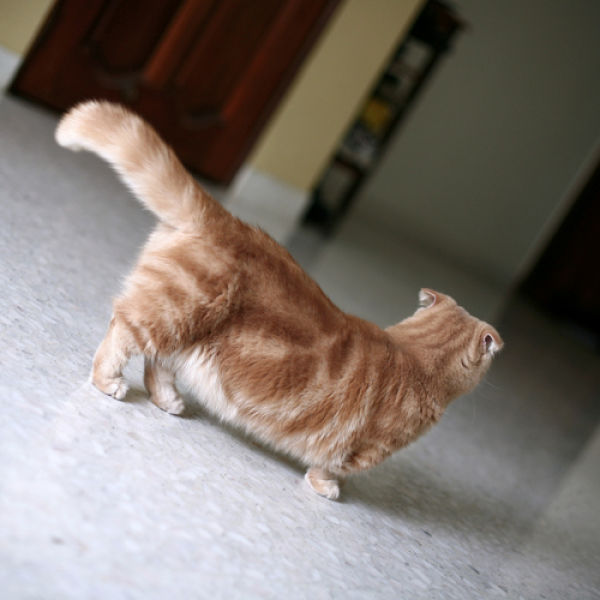Don’t miss this Do Cats Get More Cuddly As They Get Older article containing the interesting information you’re looking for, all carefully summarized by us.

Do Cats Get More Cuddly as They Get Older?
As a dedicated cat owner for over a decade, I’ve witnessed firsthand the remarkable bond one forms with their feline companions. One of the most endearing qualities of cats is their affectionate nature. But as they grow older, many cat enthusiasts wonder if this loving behavior intensifies.
In this comprehensive article, we delve into the enchanting world of cats and explore the captivating question: Do cats get more cuddly as they age? Through a blend of scientific insights, personal anecdotes, and expert advice, we will unravel this enigmatic feline phenomenon.
The Role of Age in Cat Behavior
When discussing cat behavior, age plays a significant role. Kittens are known for their boundless energy and playfulness, while adult cats tend to be more composed. However, the extent to which age influences a cat’s cuddliness is a matter of some debate.
Some experts contend that as cats age, they become more sedentary and seek out human companionship for comfort. Others argue that while cats may become more affectionate with age, this is not a universal trend.
Factors Influencing Cuddly Behavior
The level of cuddliness a cat displays is influenced by a complex interplay of factors, including:
- Individual personality
- Breed
- Early socialization
- Health
- Environment
Certain breeds, such as Ragdolls and Siamese, are known for their affectionate nature, while other breeds may be more independent. Early socialization also plays a crucial role; cats exposed to gentle handling and positive interactions with humans are more likely to be affectionate.
Understanding the Science Behind Cuddling
Feline behavior is driven by instinct, hormone levels, and environmental cues. Oxytocin, often referred to as the “love hormone,” has been found to increase during cuddling. This hormone promotes bonding and relaxation, enhancing the overall cuddling experience.
Additionally, cats possess scent glands in their cheeks, tail, and paws that release pheromones when rubbed against objects or humans. These pheromones create a sense of familiarity and security, making cuddling a comforting and bonding experience.
Tips for Enhancing the Cuddle Factor
If you wish to nurture a closer, more affectionate bond with your feline friend, consider implementing these tips:
- Establish a consistent routine: Cats thrive on routine. Dedicate specific times for cuddles, creating a sense of anticipation and comfort.
- Create a cozy and inviting space: Provide a warm, comfortable spot where your cat can retreat and feel secure, encouraging cuddles and relaxation.
- Respect your cat’s boundaries: Not all cats enjoy cuddling. Pay attention to your cat’s cues and avoid overwhelming them. Observe when they approach you for cuddles, and respond with gentle affection.
Addressing Common Concerns
Some cat owners may encounter instances where their cats become less affectionate with age. This could be due to several factors:
- Health issues: Pain or discomfort can affect a cat’s mood and behavior, resulting in decreased cuddliness.
- Cognitive decline: As cats age, they may experience cognitive decline, leading to changes in their behavior, including reduced affection.
- Environmental changes: Major life events, such as moving or introducing new pets, can stress cats, impacting their behavior and making them less inclined to cuddle.
If you notice a sudden or significant change in your cat’s affectionate behavior, it’s advisable to consult a veterinarian to rule out any underlying medical or cognitive issues.
Conclusion
Whether cats get more cuddly as they age is a nuanced and multifaceted question. While some cats may become more affectionate, others may maintain their previous levels of cuddliness or even become less affectionate. Understanding the factors influencing feline behavior is key to fostering a close and loving bond with your furry companion.
Are you ready to embark on a heartwarming journey of cuddles with your feline friend? Remember to visit our website regularly for more captivating content on all things cat-related.
FAQs
Q: Why do cats become more affectionate at certain times of the day?
A: Cats are crepuscular, meaning they are most active at dawn and dusk. During these times, their instinctual drive to hunt is heightened, making them more receptive to cuddles for reassurance.
Q: Can I encourage my cat to cuddle more?
A: Introducing calming pheromone diffusers, providing a safe and comfortable space, and engaging in interactive play can all contribute to creating an environment conducive to cuddling.
Q: Is it normal for my cat to become less cuddly with age?
A: While not all cats experience decreased affection with age, some may. Factors such as health issues, cognitive decline, and environmental changes can influence their behavior.

Image: www.pupperish.com
You have read Do Cats Get More Cuddly As They Get Older on our site. Thank you for your visit, and we hope this article is beneficial for you.